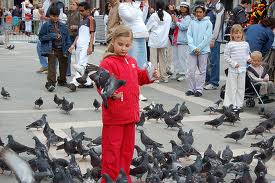I start with the summary of the book that I read in my philosophy days, “The Third Wave” written by Alvin Toffler. In this Masterpiece of literature, he enumerates the three waves that the world has time-honored from the birth of human life. The ancient world was dominated by the agricultural wave, the medieval world was conquered by the industrial wave and the present modern world is in the age of digital wave. When I sat down to write an article on communication, the wave that struck me was digital wave.
The digital wave is characterized by ever changing technology, rapid industrialization and resultant shrinking of the globe by the emergence of information societies. Innovative technologies such as the medium wave transmission, colour television systems, undersea communication cable links, satellite communication, semi-conductors, digital electronics, computers, telephones, laser, and optical fibers have revolutionized and furthered the process of communication. Before moving further, let us understand the word communication
Understanding ‘Communication’
Communication is derived from two Latin words communicare (Share) and communis (Common Horizon). First communication implies a coming together to share the common horizon. It is in common horizon, both, the sender and receiver communicate to become meaning making animals. Human beings realize the need to touch the horizon of the other. This is a constant and continual journey of awareness. In this journey, Communication becomes a path in discovering the new horizon of the other. Most of the life experiences are constructed in communication with other life experiences, which arise out of common life. Human being is thrown into the world of freedom, to make his/her own choices, to discover a new horizon, which makes his/her life authentic. The supreme dharma of Human Being is to embrace, ever-new horizons of relationship and understanding, for the fulfillment of the self. Discovering the new horizon is very much constructed in and around language, because human being will know the horizon of the other, as much as he/she is acquainted, with language of the other. Thus, the human self is fulfilled, in language. Wittgenstein steps in here affirming, that limit of Communication (language (that human being understands) means the limit of human being’s world. That is why Chomsky is right in saying, that communication is a reality, which is specifically designed for the process of relationship between the person and the other. It is a conscious and a continuous process in human life. Why of Communication
The world of today runs on communication and therefore, doing the acts, speaking the words and even remaining in silence is all communication. Therefore, nothing can escape the realm of communication. Thus, it is an important fact of human life. Therefore, human beings need communication more than communication need human being does. Communication is necessary because of three reasons:
· To Know: Every being in the world is knowable, conceptualized, framed, captured, thought and judged in communication. Human being by his/her nature desires to know. Knowledge is continuously ongoing process. Communication is an aid in acquiring knowledge and imparting knowledge. Human knowledge cannot function without communication and it is wrapped up in the realm of language. Knowledge is within the language. Knowledge as such is acquired, that bursts forth from language and has its roots deep in language. The ancient Indian linguist Barthrhari proclaims, that all knowledge is illumined through language and there is no such thing as knowledge without language says Gadamer. Without communication, human knowledge could not be propagated. Without a relationship of communication between subjects that know, with reference to a knowable world, the act of knowing would disappear. · To Become: Communication is the foundation on which human being, lays the project of the self towards transformation. In this present world, communication speaks human being than the humans speak communication. Communication as the primary purpose of human being develops a sakti of changing life and the rest of reality within the human reach. It transforms, moulds, creates and destroys human being’s use or abuse of it. A good word communicated remains as an agent of transformation and it is a source of healing the spoilt self. Though communication cannot fully express dharma, without communication dharma cannot be conveyed. For example, human being knows that there are laws to be followed to live in the society in peace and harmony. One simple law is human being has no right to take the life of the other human being. He/she knows it because it is put in language. Unless law is in language, it can never be communicated. · To Integrate: Communication with its power creates an attitude of integration rather than adaptation. It becomes integration when human being is able to root in his own horizon and at the same time, make, his own the horizon of others. It is in this fashion that aliens become non-aliens, strangers become fellowmen, and foreigners become one’s own people.
Purpose and Meaning of Communication
In the entire universe, there are many living beings like animals, plants, insects and many other beings. They just exist without a sense of purpose in life. On the other hand, human being exists and makes every choice purposefully and consciously to become authentic in life. It is because human being has the capacity for communication. No human being is without it. Human life can be built, created and achieved authentically only on his/her thirst for relationship and understanding within the boundaries of language. Thus, the world of human being is a world of communication. Communication is always accompanied by dialogue and hence it implies reciprocity that is as something that learns and as something that communicates. It is more apt to say that communication is not speaking but doing. The person longing to be a human being defines meaning of life, which in turn is the basis for the authentic living. Communication Builds Authentic Relationship with the Self and Other
In this part of the article, I shall explain the core of language in relation to human being in acquiring and building relationship with oneself and the other. Human beings become participants in communication to acquire knowledge, as language constitutes a network of relationships. Relationship means what a person is to the other and what is other to a person. Language prepares the ground for human being to relate with and understand realities, which in turn fit into and make humans to interpret in the given situation. In the absence of understanding, communication becomes ambiguous. Human behaviour is continuously spurred, molded and constrained by information and communication both internally by socialization, perception and cognition and externally through human interaction, social structures and emerging technologies. Human world would not exist if it were not a world that is able to communicate. Just as there are no isolated human beings, there cannot be isolation in thinking. Human Being exists in the world. The existence, in the world is all about relationship. Human communication with other is a channel for self-realization, the relation to others only an instrument for that relation to oneself. The Contact with the other discloses the identity of oneself. From the beginning of human life, the human life is designed for/with the other. In other words to exist is to co-exist as it is the fundamental fact of human existence. As long as he/she exists, he/she longs to relate with the world in which he/she lives, with the Absolute the cause of his/her existence and with the person with whom he/she lives. In other words, it is the consciousness of/about the other. This capacity and longingness to enter into relationship distinguishes human beings and serves as a motivating force in life. In other words, it is in communication that human being is revealed to him along with the other. As the vehicle of this appeal, it is indispensable to meaning and authenticity. Communication Creates Authentic Understanding
Understanding is, as I see a reproduction that makes human beings productive, in their approach towards holistic view of reality. It is not just a mode of human behavior but it is his/her basic ability to live and cope skillfully with the world. It is grasping the entire mode and essence of being in the world. Hence, it requires projection of possibilities that occur within the territory of communication.The fundamentality of Human existence, in the world is that human understands his/her self, and every reality. All human beings by their very nature seek to understand realities making communication a catalyst. All understanding proceeds from a pre-understanding. Communication is a process of reaching understanding. Language has such nature, that it offers itself totally to be understood. Thus, every understanding process is grounded in the language, and hence being that can be understood is language as Heidegger affirms language as the house of being. It is also equally important that very much of human understanding is shaped by the tradition and the context in which they live, move and have his/her being. When language is understood taken as removing the veil, of human ignorance and reveals the knowledge of reality. Understanding is an event that happens in the world. When the communication between people is understood, creates for him/her a world illuminated by communication. Every being in the world presents itself in communication. As he/she is able to understand reality, he/she is able to consider reality, as it is in as much as it is, to interpret it to the context. Understanding is not just an assertion, for the sake of assertion, but it is being changed into a state of life in which human beings do not remain as he/she was but becomes a new being through understanding. When he/she possesses the understandability, has the capacity to interpret the reality and being in the state of interpretability. Meaning and Authenticity Emerge In and Through Communication
Among all the living beings, the existence of human being is unique. Uniqueness is an essential good of human being that is given to him/her to unfold the realities through his/her actions. His/her uniqueness allows him/her to encounter the other differently. Not only the human being encounters the world differently but also every event in life is encountered differently. The mere fact, that human being is in the world is an indication that human being quests for something primordial in his/her existence and life. This quest in common is to thirst for authenticity. All human beings are in the process of authentication. The process of authentication is complete in and with the other. The other is a facticity, that cannot be denied and turned away from, but only can be lived with. Living with the other, as far as is concerned, comprises assortment of events. Every event in the life of human being occurs within the territory of communication. Therefore, there is a continuous interaction between human being and the other. Every event happening in the life of human being reveals the degree of meaning and authenticity in every human being. Thus, communication between the individuals becomes the scale to measure the meaning and authenticity in the life and existence of human being.
 Our Father in Heaven: It stresses the community life. Though, each member in the community completely different from the other, come under the same identity as Salsesians or Capuchins, or Jesuits for the same goal of Serving the Christ in the people. The difference is no more a barrier but a unique contribution from the individual to the community in bringing the gospel.
Our Father in Heaven: It stresses the community life. Though, each member in the community completely different from the other, come under the same identity as Salsesians or Capuchins, or Jesuits for the same goal of Serving the Christ in the people. The difference is no more a barrier but a unique contribution from the individual to the community in bringing the gospel. 




















